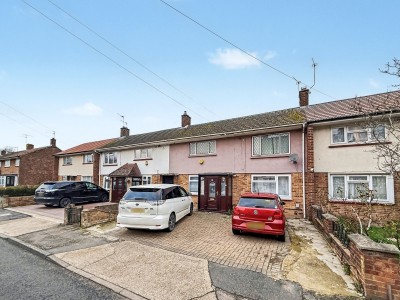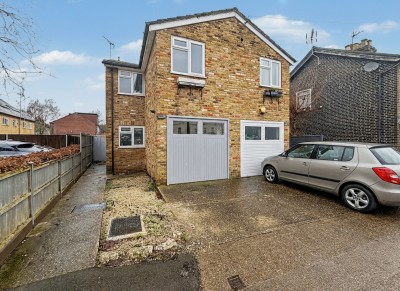The latest market insight from Uswitch has revealed that almost half of first-time buyers purchased their property with help from a government scheme.
In the midst of a cost of living crisis, getting on the property ladder can be financially daunting. Uswitch mortgages conducted a 2,000-person survey to investigate purchase trends amongst first-time buyers to identify how they afford their properties. Uswitch mortgage expert, Kellie Steed, also shares tips about what to consider before buying your first home.
Most common first-time buyer purchase methods
The Uswitch survey revealed that 45% of first-time buyers purchased their property with help from a government scheme. The most common scheme used was the First Homes scheme (36%), followed by a Lifetime ISA (29%).
Kellie Steed, Uswitch mortgage expert, commented: “When people think about first-time buyer schemes, their mind often jumps to Help to Buy. However, the Help to Buy equity loan scheme is no longer available in England, Northern Ireland or Scotland, although those in Wales who are eligible can still apply.
“For English homebuyers, one of the alternatives is the First Homes scheme, which was the most popular government scheme amongst survey respondents. Offering a 30 to 50% discount on the market value of a property may help those struggling to make that leap onto the property ladder due to affordability. However, there are limitations on the type of properties you can purchase, and certain eligibility criteria apply.”
The second most common purchase method was buying with a ‘traditional’ mortgage (44%). 38% of first-time buyers who bought a house with a mortgage opted for a standard variable-rate mortgage, or a fixed-rate mortgage (32%).
34% of first-time buyers got help from their parents to get on the property ladder, with 24% getting a loan from their parents for the deposit, and 10% of buyers' parents gifting them money towards their purchase.
In terms of ownership, the survey also revealed that 48% of first-time buyers are the sole property owners, while 33% bought with a partner.
The costs that many first-timer buyers were unaware of pre-purchase
The survey also revealed that most first-time buyers are unaware of some important financial considerations prior to buying their property:
Despite almost half of first-time buyers purchasing with a mortgage, only 7% were aware of the mortgage admin fee prior to securing their mortgage.
79% were unaware of stamp duty costs, for which the government have implemented a first-time buyer stamp duty relief measure in England and Northern Ireland – if you’re buying a property up to £425,000, you don’t have to pay stamp duty.
45% were aware of survey costs. When buying a property, a valuation (checking if the property is worth what you’re offering) is essential and usually involves paying a fee to your lender. A survey is more detailed than a valuation and checks that the property is structurally sound, so can be beneficial. Survey fees vary depending on the level of detail requested and the size and value of the property.
Only 40% were aware of conveyancing fees, which can cost between £800 - £2000.
Kellie Steed commented: “It can be easy for first-time buyers to only focus on rates when looking at mortgage deals. While the rate is really important in working out how expensive your repayments will be each month, buyers should also consider the fees involved. A mortgage deal with a low headline rate can sometimes wind up being more expensive than higher-rate deals due to fees.
“On average, the arrangement fee alone sets a first-time buyer back around £345. But this is an average figure - in reality, some first-time buyers may pay nothing while some may face a cost of over £2,000. That’s why it’s so important for prospective homeowners to be aware of the fees associated with a mortgage. It’s a similar situation for legal fees, with the range paid varying from £0 to £600, with an average of £89.”
Things to consider before becoming a first-time buyer
Before becoming a first-time buyer there are a range of factors to consider. You’ll need to assess whether you’re financially prepared, and what support you may need, as well as think about the property itself in terms of what you’re looking for.
Budgeting for additional costs
Ensure you account for all additional expenses associated with buying a property. There are several costs to consider on top of the mortgage payments. Mortgages themselves come with additional admin fees and costs like surveying and land registry fees are unavoidable.
There are also outgoings to account for once you’ve moved into the property, such as insurance, utilities and council tax. Factoring these into your budget early on will ensure you’re prepared and can actually afford to buy.
Deciding what type of mortgage to get
The type of mortgage that’s best for you will depend on your financial situation/stability, preferences and long-term plans. Make sure you seek advice to help with the process - a mortgage broker can help you review all your options and decide which is best suited to your circumstances.
Be prepared for the property search
Firstly, you’ll need to decide on which non-negotiable features you want the property to have. You may have to be lenient on any additional features based on your budget, so it’s important to define your criteria. You should also make sure you have a checklist for attending viewings, including questions to ask the estate agent.








